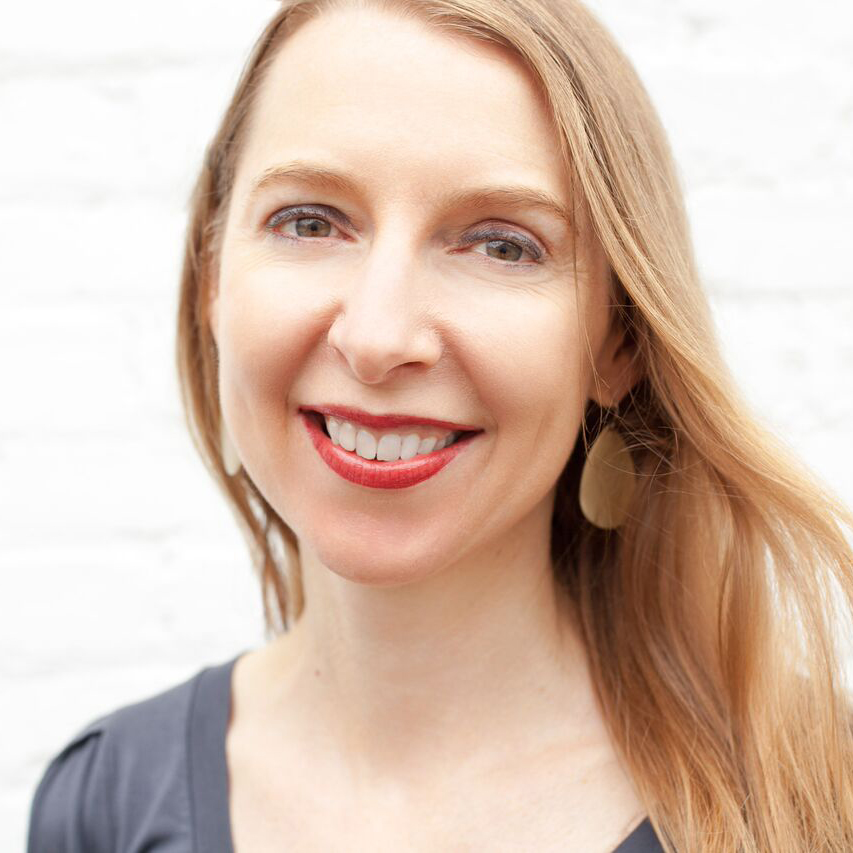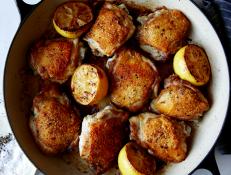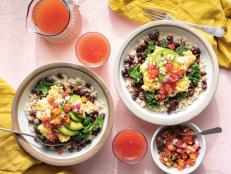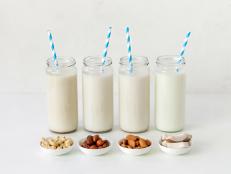7 Foods That May Slow (and Might Even Reverse) Hair Loss
Eat your way to healthier, thicker hair.

Peter Dazeley/Getty
It’s pretty normal for hair loss to start happening in our 40’s, but it can even begin in our 30’s. Hereditary hair thinning is a condition that affects an estimated 80 million Americans — 50 million men and 30 million women, according to the American Academy of Dermatology (AAD).
"By making sure you're eating enough of important nutrients through food, you can keep the hair you have and potentially increase healthy growth," says dermatologist Crystal Aguh, MD, Assistant Professor of Dermatology, Johns Hopkins School of Medicine.
While not conclusive, some researchers have found that not eating enough of certain nutrients can contribute to hair loss; these include vitamin E, vitamin C, B vitamins including biotin, omega-3 and omega-6 fats, and especially iron, zinc, and protein. In a recent study among Italian women, the authors found that a combination of some of these nutrients, including fatty acids and antioxidants was associated with thicker hair and less hair loss; if replicated this study could be promising. But does that mean we should be popping supplement pills to grow hair? The short answer is no. "Some supplements, including mega-doses of vitamins A and E and selenium are linked with hair loss," cautions Dr. Aguh.
To up your intake of hair-health nutrients, all you need to do it eat. Try to include more of the following foods in your weekly diet to help your hair health.
Peanuts
Peanuts are one of the richest sources of the B-vitamin biotin, a nutrient that is frequently found in so-called "healthy hair" supplements. Most people meet the recommended 30 mcg daily of biotin, but according to the AAD, biotin deficiencies can cause hair loss. Peanuts have nearly 5 mcg of biotin, as well as being a source of protein and vitamin E and healthy omega-6 fats.
Salmon
Both cooked and canned salmon are sources of omega-3 fats and a serving contains 4 to 5 mcg of biotin. There is limited scientific research specifically on fatty acids and hair growth, but fish also contain healthy amounts of vitamin D which is involved with the normal growth of hair follicles.
Eggs
Eggs contain a list of healthy-hair nutrients including vitamin D, selenium and omega-6 fats. And along with zinc, iron and high-quality protein, just one egg has a full one-third of the daily recommended amount of biotin with 10 mcg.
Strawberries
Rich in antioxidants, especially those potent phenolic compounds found in berries, a cup of whole strawberries has more vitamin C than an orange. That amount has about 1.5 mcg of biotin and small amounts of iron, zinc, and selenium.
Lentils
Selenium is a mineral that plays a role in the formation of hair follicles and is often included in hair health supplements. But because excess selenium can cause hair loss, a better place to get it is in food sources like beans and lentils, along with seafood which is a rich source of selenium.
Sweet Potatoes
The antioxidants vitamin A and vitamin C are found in sweet potatoes. A 1-cup serving has more than 2500 mcg of the recommended 700 mcg of vitamin A for women. Sweet potatoes are also a good source of biotin with more than 10 percent of the recommended amount.
Canned Tomatoes with Oregano
The nutrient lycopene is found in abundance in canned tomatoes; this antioxidant was one of the nutrients included in that promising study among Italian women. The herb oregano also contains antioxidant components which protect against cell damage; and while not scientific evidence, it might be worth noting that oregano was commonly used as an ancient remedy against hair loss.
Serena Ball, MS, RD is a registered dietitian nutritionist, food writer, and mom of four children. She blogs at TeaspoonOfSpice.com and is the author of the best-selling The 30-Minute Mediterranean Diet Cookbook. Follow her @TspCurry on Twitter and Instagram.
Related Content:


































